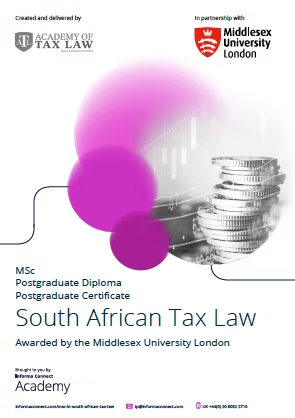POSTGRADUATE MSc (MASTER's) IN SOUTH AFRICAN TAX LAW
The dissertation’s objective is to apply South African Tax Law knowledge through structured research to explore uncertainty and unlock new possibilities. Drawing on learning from Stages 1 and 2, students undertake a detailed study of a defined problem in South African Tax Law and develop a justified recommendation. They are expected to analyse sources critically, integrate case law and statute, and generate new questions, concepts, and insights for professional practice and academia.
Duration
+36 months, part-time
Credits
18 University Credits
Effort
6–10 hrs/week average*
*Student dependent
Assessment
15,000-word dissertation
Format
Distance-based, scheduled supervisor
meetings
Award
MSc (Master’s), Middlesex
University

MSc (Stage 1+2+3) Overview
Exit Qualification: MSc (Master’s)

This stage is the concluding phase of the MSc qualification.
To be enrolled for the MSc, students must have completed the PG-Diploma in South African Tax Law (or an equivalent award).
The main objective of the dissertation is to apply the knowledge of South African Tax Law, through research, to explore the unknown and unlock new possibilities within the practice area of South African Tax Law.
With the knowledge gained from Stages 1 and 2 of the programme, students are guided to conduct a careful and detailed study of a proposed problem or concern in South African Tax Law and provide an appropriate recommendation in response.
Students are encouraged to draw on the learning and conduct an in-depth analysis to generate new questions, concepts, and understandings within the practice area of South African Tax Law.
Upon successful completion of the programme, you will have a comprehensive grounding in all aspects of South African Tax Law and be able to address the crucial issues within the sector and be equipped to engage with the relevant international authorities in the field.
To successfully complete this stage, students must submit a 15,000-word dissertation that applies South African Tax Law through structured research to explore uncertainty and unlock new possibilities in practice.
Drawing on knowledge from Stages 1 and 2, the dissertation undertakes a careful, detailed study of a defined problem or concern, integrating statute and case law, and conducting sufficient analysis to consider and respond to the issue.
Students are expected to develop a justified recommendation and, through critical inquiry, generate new questions, concepts, and insights that advance professional understanding of South African Tax Law.
Learning Outcomes
On successfully completing this module, the student will be able to:
Course Content
- Engage in systematic discovery and critical review of authoritative sources within South African Tax Law, including statutes, regulations, case law, and SARS guidance.
- Apply appropriate qualitative and, where relevant, quantitative evaluation to primary and secondary tax materials and data.
- Understand and apply ethical standards in collecting, handling, and assessing taxpayer data and other resources.
- Gain in-depth knowledge of the selected dissertation topic and its relevance within the broader South African tax landscape.
- Anticipate empirical challenges and address practical research problems, for example collecting, organising, and analysing financial and legal data.
- Design and manage a South African Tax Law research project, translating findings into defensible positions for real-world scenarios.
- Navigate the complex inter-relationships between legislation, jurisprudence, administration, and commercial practice.
- Strengthen skills in communication, evidence gathering, analysis, report writing, and time management, essential in South Africa’s demanding and evolving tax environment.
Knowledge (understanding)
- Engage in systematic discovery and critical review of appropriate and relevant information sources within the practice area of South African Tax Law.
- Appropriately apply qualitative and/or quantitative evaluation processes to original information/ data within the practice area of South African Tax Law.
- Understand and apply ethical standards of conduct in the collection and evaluation of data and other resources within the practice area of South African Tax Law.
- Gain in-depth knowledge of the selected dissertation topic, and the relevance thereof in terms of the broader South African Tax Law arena.
- An understanding of the challenges of empirical research, and the ability to deal with practical research problems (eg, collecting, manipulating and analysing data).
Skills (competencies)
- Develop the ability to design and manage a tax project/s and apply what has been learned to real-world scenarios.
- Learn how to deal with the complex inter-relationships of real-world processes.
- Hone the skills in interpersonal communication, data collection and analysis, report writing, and effective time management, all of which are critical in the extremely demanding and ever-changing world of South African Tax Law.

The assessment scheme consists of the following, (per module):
Dissertation (100 Marks): A 15,000-word dissertation to be submitted.
Students must submit their final dissertations on their chosen research topics. Feedback will be given throughout the research project period from approval of the topic until submission.
Download Course Brochure
PG-Cert | PG-Dip | MSc


